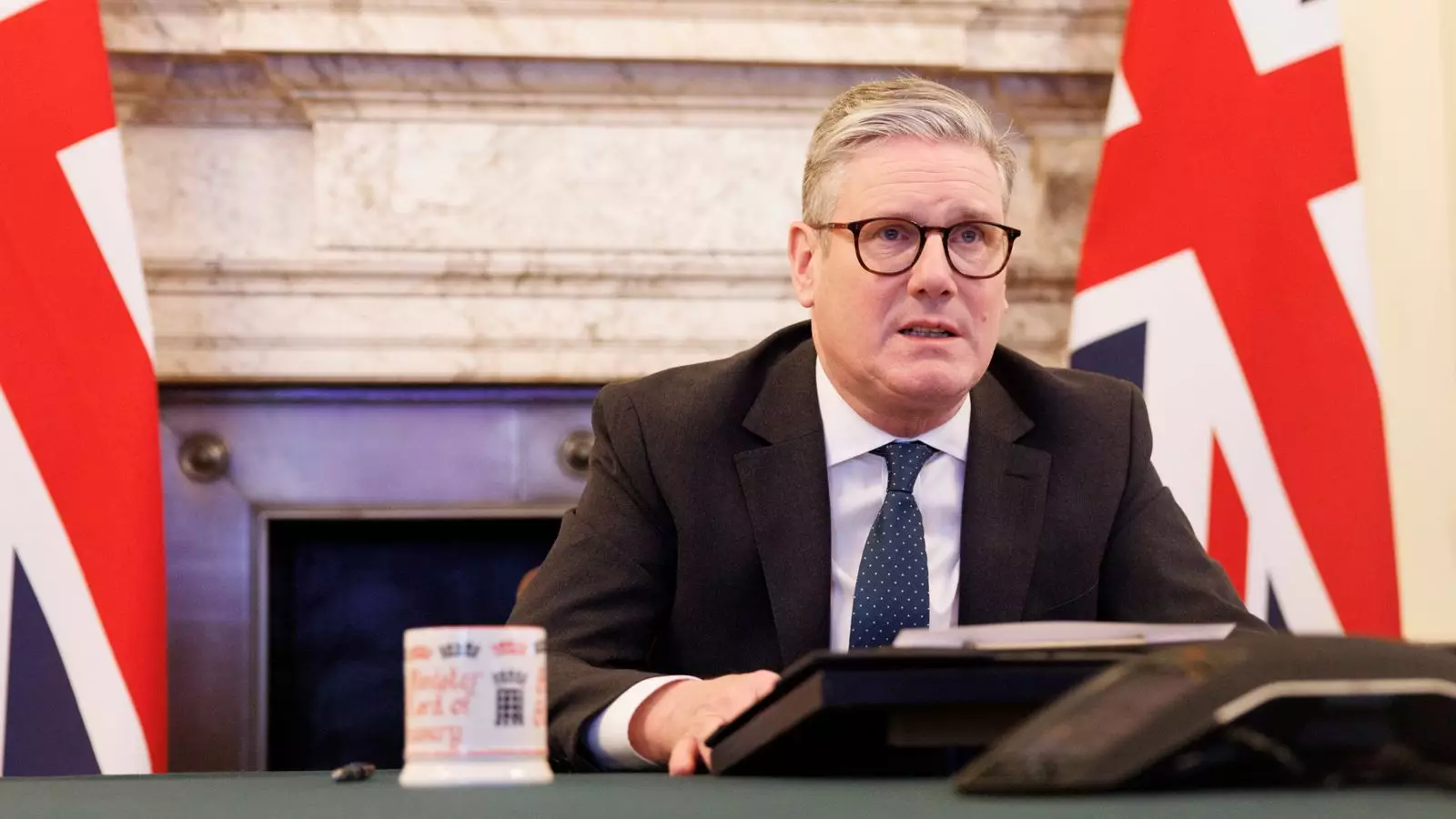Today marks a pivotal moment in the ongoing struggle for peace in Ukraine as Sir Keir Starmer convenes a virtual assembly of world leaders, united by a common goal: a definitive end to the conflict that has ravaged the region. In a landscape cluttered with empty rhetoric and delayed promises, the emphasis on “concrete commitments” demands immediate attention. The backdrop of this high-stakes discussion raises crucial questions about the efficacy of global governance in addressing aggressive military tactics and the moral obligations of powerful nations toward those in distress.
Starmer’s initiative—dubbed the ‘coalition of the willing’—is both timely and necessary, but it must transcend mere declarations. It needs a strategic blueprint, a roadmap that requires all participating nations to align their military support and tighten economic sanctions on Russia. Only through unwavering solidarity can the leaders assert themselves against the Kremlin’s intransigence, characterized by a profound disdain for peace proposals.
The Urgency of Military Support
One glaring issue that directly impacts discussions is the urgency of enhanced military support for Ukraine. While the aspirations of the leaders may center on peace, the reality on the ground demands a robust response to Russia’s ongoing aggression. This aspect of the meeting cannot be taken lightly; any hesitance is a signal to Moscow that the world’s resolve is weakening. The participants must emerge with a definitive strategy to facilitate military assistance, ensuring Ukraine is equipped to defend itself against further hostilities.
Moreover, merely stating the need for increased support is not sufficient. Starmer’s call for action should incite a sense of urgency; words must translate into concrete steps—such as expedited armament shipments and logistical support for Ukrainian forces. The stakes are high, and procrastination equates to acquiescence in an increasingly violent situation.
Short-Term Measures Versus Long-Term Solutions
The interplay between immediate military actions and long-term peace strategies is another layer of complexity that the leaders must navigate during this virtual gathering. While Starmer accentuates the need for economic pressure on Russia, leaders must also consider the broader implications of sanctions and how they affect ordinary Russians. A balance must be struck between penalizing the Kremlin for aggression while not exacerbating the humanitarian crisis.
Starmer’s assertion that countries need to prepare for an eventual peace deal insinuates that the dialogue for a ceasefire is actively being pursued. However, this dialogue must not come at the expense of accountability for Russia’s actions. The meeting should culminate in a clarified position on what a peace process would entail—conditionality, parameters for a ceasefire, and guarantees against any volatility that could emerge from a lack of enforcement.
Addressing Putin’s Tactics
Putin’s tendency to manipulate discussions is evident. Starmer rightly emphasizes the Kremlin’s tactics of obfuscation—using terms like “painstaking study” to delay important negotiations. The world must recognize that the Russian leader playacts a farcical game of diplomacy, intent on extending his regime’s grip on power while continuing his assaults on Ukrainian sovereignty.
A robust response necessitates vigilance; leaders participating in the call must come informed and prepared to challenge Putin’s disingenuous assertions. The statement that the “world needs to see action” is not merely aspirational; it is a call to arms—metaphorically and literally. There must be unwavering resolve to counter any subterfuge and to bounce back with a united front, pushing for hard-hitting consequences whenever necessary.
The Challenge of Global Consensus
While the intent to rally international support illustrates a commitment to collective action, achieving global consensus remains a daunting hurdle. Issues such as the reluctance of some nations to adopt a hardline stance against Russia complicate this unified approach. The interplay of geopolitical interests creates detours that can dramatically slow down the pursuit of meaningful solutions.
A compelling example arises from Washington’s conditional support; Starmer’s plea for a security ‘backstop’ highlights the nuanced complexities of diplomatic negotiations. History teaches us that without united efforts, even the most promising initiatives can flounder. For this summit to be deemed successful, it must foster an environment conducive to transparency, receptiveness, and, above all, unconditional solidarity against tyranny.
The challenges ahead are formidable, but with a united front, world leaders possess the potential to turn the tides in favor of peace, protect the sovereignty of nations, and showcase an unwavering commitment to human rights. The call for action has been issued—now it is time to act decisively.



Leave a Reply